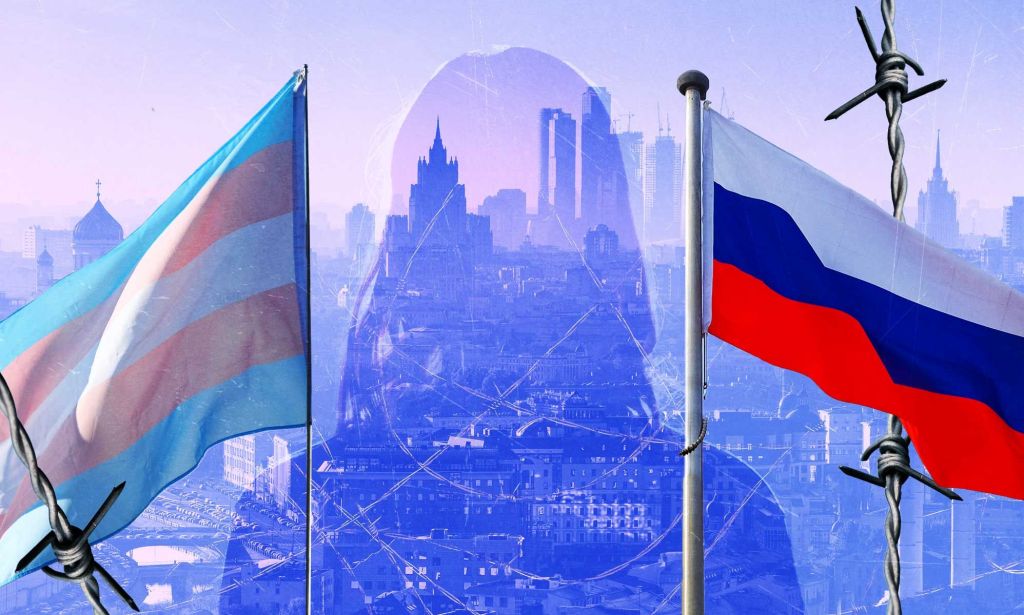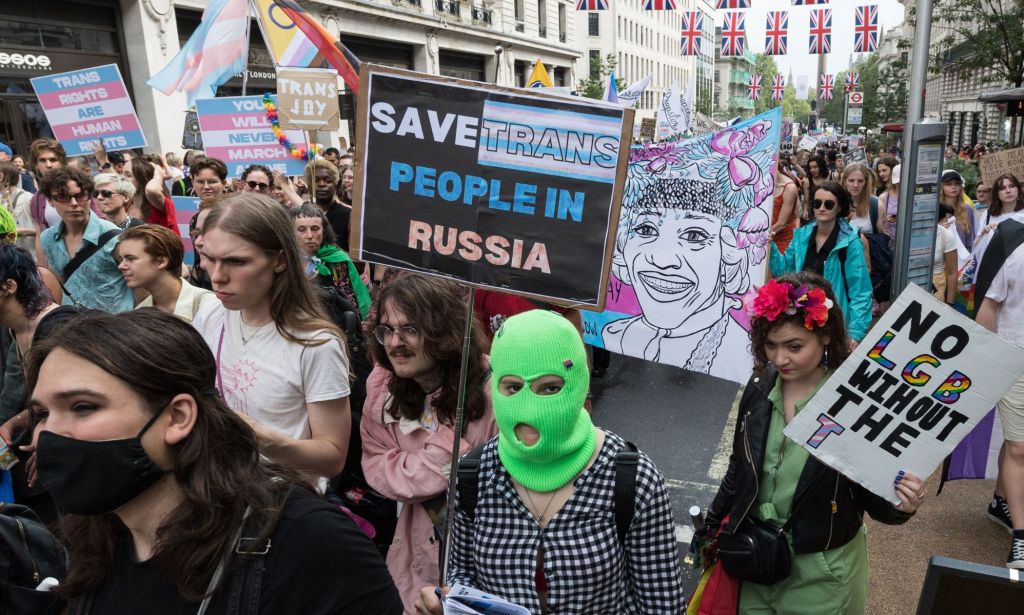Trans woman forced to ‘castrate a pig’ in Russian conversion camp

[ad_1]
As Russia continues to crack down on LGBTQ+ lives, one transgender woman has told PinkNews how she was forced to undergo conversion therapy, which involved “masculinity training”, and being ordered to castrate a pig.
Before coming out, Ada Blakewell was inspired by stories of trans people who had shared their truth with their parents and found acceptance.
Her own “deeply religious” parents are members of the Russian Orthodox Church, however, and coming out to them did not go as planned.
“I was told that [being trans] is a poison by the devil, that Western culture has poisoned my brain,” Ada says.
After moving out of the “intrusive” family home in 2018, she returned to visit a year later. Her mother, Ada was told, needed heart surgery and wanted her to go with her to the hospital.
However, this was all a ruse.
“It was like a theatre, and I was the spectator,” Ada says.
“While going to the cardiology centre, we suddenly left the main road and proceeded on some rural paths, dirt and gravel.
“Suddenly, we just stopped. My mother left the car. Then a really huge man – looking like a bandit from the Russian ’90s – came, and he was like: ‘Well, now you gotta pay for all your f****tness’.”
The centre Ada was taken to wasn’t for LGBTQ+ people exclusively. It also held those struggling with addictions to drugs and alcohol as well as mental-health issues.

Her electronics and all means of communication with the outside world were taken away during the nine months she was in the centre.
While there, she was called hateful slurs and forced to pray.
“It was like a semi-religious camp where we had to give our will to God and pray that he would help cure our incurable diseases,” Ada says.
She also endured “masculinity training” including construction and wood-chopping.
“They did some pretty weird stuff,” Ada continues. “One time, they forced me to castrate a pig ‘because I wanted to change my sex’.
“I actually couldn’t finish it because I got a severe panic attack.”
Ada was left with post-traumatic stress disorder as a result.
Since leaving the conversion centre, she has been able to find people who love and accept her. She is “obsessed” with queer TV shows such as Heartstopper, loves the “state of being polyamorous” and describes herself as a pluviophile: someone who enjoys the rain.
But her hard-earned optimistic outlook has been tempered by the “knowledge of upcoming doom that [she] cannot stop” – one she believes will result in “apocalypses” for the Russian LGBTQ+ community.

Activists have warned that there are an untold number of clinics operating in Russia, claiming to be able to change a person’s gender identity and sexual orientation through the use of drugs, hypnosis, occupational therapy, surgery, “corrective rape” and electric-shock torture. And it’s impossible to know the true number of Russians subjected to conversion therapy because survivors rarely feel comfortable or safe coming forward.
“To be honest, not a lot of people who went through conversion therapy are able to speak up,” says Anna-Maria Tesfaye, the co-founder of Queer Svit, a not-for-profit organisation helping LGBTQ+ people and others affected by Russia’s invasion of Ukraine.
“The problem is that usually when someone puts someone into conversion therapy in Russia, it means that they’re not coming back and a lot of them are losing their mind because they’re being drugged for years.”
Wide-ranging ban affecting rights of trans people
In June, the Russian health ministry ordered clinics to enlist so-called sexologists to help individuals “overcome” being part of the LGBTQ+ community, Reuters reported.
The new directive, which took effect on 1 July, effectively undoes Russia’s removal of homosexuality from the list of mental disorders in 1999, which followed decriminalisation in 1993.
Weeks later, on 24 July, president Vladimir Putin signed into law a new ban on “medical interventions” that help trans people, including gender-affirming surgeries and hormone therapy.
The measure also outlaws changing gender markers on official documents such as passports. In addition, it removed marriage and adoption rights for trans people.
The conversion therapy directive and anti-trans legislation represent yet another step toward the marginalising and eradicating of LGBTQ+ identities in Russia.
As part of the Kremlin’s conservative agenda, Russia banned “LGBTQ+ propaganda aimed at minors” in 2013 before expanding the legislation in December to encompass all age groups.
Earlier in 2023, Ada went to the Russian parliament to confront legislators and experts about how the wave of anti-LGBTQ+ legislation “literally kills”. Her pleas fell on deaf ears.
“The other day, I went to the head of the Russian parliament [Vyacheslav Volodin], and it was a surreal experience,” she says.
“The way I talk to those politicians is I [go] up to them and say: ‘You want to kill me personally. I just feel that, with this specific law, you are killing me’.
“The next thing he [Volodin] does is just stand before me and asks: ‘Who let you in here?’
“For me, it was a realisation that they just don’t care. Whatever I do, wherever I go, it doesn’t matter. We will still be marginalised. We will still be banned no matter what my actions.”
[ad_2]